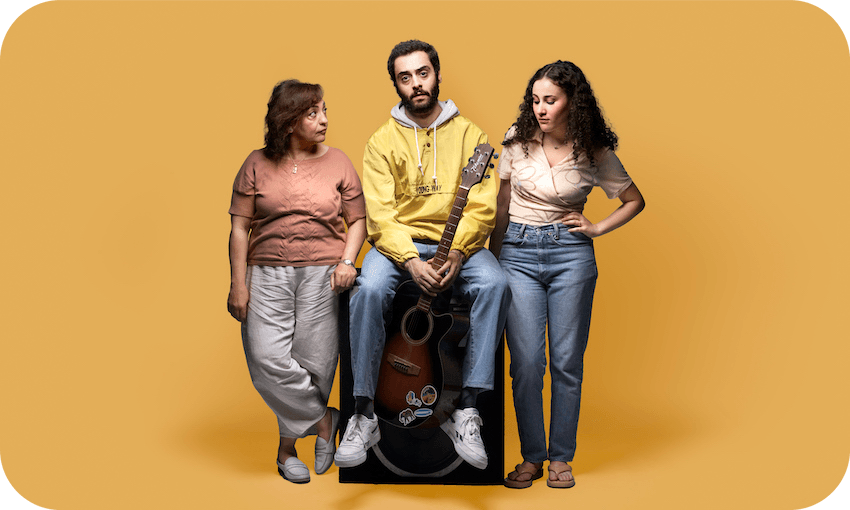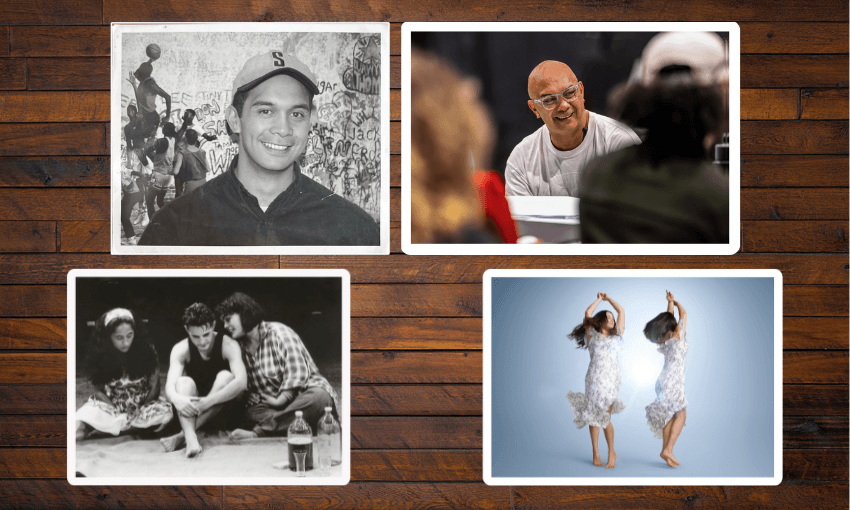Writer, journalist and poet Mohamed Hassan on how his everyday experiences as a Muslim man in New Zealand helped him create new comedy-drama series Miles From Nowhere.
My 20s were a terribly messy ordeal. I was depressed, crippled under the weight of career expectations and unfulfilled desires. I had abandoned a stable job in civil engineering and decided to become a poet and a journalist – to the reasonable horror of everyone around me. I was trying to find my voice, and fix my accent so it sounded the way an Everyday New Zealander did (read: dud).
It was no use. Wherever I went, I stuck out like a hedgehog in a doggy pageant – prickly and hard to understand. What’s up with your accent, bro? Is it American? Irish? South African? All of the above?
I was trying to make my immigrant parents proud and honour the sacrifices they’d made to give me a solid future. They’d left everything they knew in Egypt to start from scratch in a country they didn’t understand, and where the English sounded nothing like what they were taught in school.
Why was everyone mumbling? Why was milk so expensive?
On top of everything, their eldest boy (shout out Kendall Roy) was dragging them to bars and open mics so he could talk about his feelings to a crowd of strangers. This wasn’t how a good Muslim boy behaved. But it was that image I was rebelling against, trying to prove I belonged in this country, even when this country wasn’t too keen on having me in it.
We sought refuge inside our mosques and Sunday schools, where other immigrants could bond over broken accents and shelter from the prying eyes of the outside world. We tried to foster a perfect harmonious community that exemplified the teachings of Islam. Model minorities proud to be both Kiwi and Muslim. If we could show how grateful we were to be here, maybe we could be left to our own devices.
Watching TV depictions of the immigrant experience from the US and the UK were healing, but they didn’t quite speak to our unique life in Aotearoa. Racism here was different, subtler and more introverted but no less insidious, particularly when confronted. When I began to speak on public platforms, through poetry or on the radio, the underbelly of xenophobia began to surface.
My colleagues at RNZ only ever shared with me the positive messages that came through the phone lines, but others I read in my inbox. Long unfiltered and largely unedited rants from listeners irate at stories I’d worked on that suggested New Zealand wasn’t the egalitarian paradise we wanted it to be. I was told the “cancerous world-dominating Islamist agenda” was a poison eating away at the innocent heart of our peaceful nation.
We were well aware of what everyone believed about us. We watched the same hysterical news bulletins about Isis and Creeping Sharia that everyone else did. We watched our religion and culture paraded in front of us in clown face – distorted and obscure. The more hostile the coverage got, the quieter and more insular we became, hoping the morbid fascination would pass and the attention would shift to the next convenient bogeyman.
I remember my cousin Tarek as a shy toddler, holding tightly onto his mother’s abaya and shutting his eyes when walking into a room full of strangers. In his three-year-old wisdom, if he couldn’t see any of these scary people, then they couldn’t see him either.
That was the logic we clung to. The problem was – this wasn’t us. We weren’t quiet and timid. We were a community of loud and boisterous cultures, a witches’ brew of cumin and garam masala who laughed out loud and punched on over who paid the bill at restaurants. We were gossiping uncles and conspiracy-mad aunties that obsessed over food and cricket and mosque politics. We filled our living rooms with strangers and said a thousand goodbyes at the door. The Muslim community I knew was chaotic, and hilarious, but no one got a chance to see that because we were afraid of being ourselves.
Maybe the only people who really knew us were the intelligence operatives spying on our mosques and tapping our phones. Only they could see what the rest of New Zealand was missing out on.
When I met director, producer and proud Wellington boy Ahmed Osman on a shoot in London, we talked for hours about our favourite comedies – Atlanta, Ramy, Kim’s Convenience – and wondered when we’d get to see a Kiwi comedy about the community we loved. We’d both waited a lifetime to see someone tell that story, and if no one was going to tell it, maybe we should.
So we started a production company called Homegrown Pictures and started scheming, writing and developing. Then we knocked on every door to find partners to help us animate this Frankenstein’s monster. We got a lot of nos, and hit a lot of frustrating dead ends, but eventually to our luck and joy we found great producers at Gibson Group and a keen-eyed commissioner at Sky eager to champion our story, and to trust us to tell it.
What emerged was Miles From Nowhere, a dramedy about an amateur songwriter who must choose between the chaos of his Muslim community and the dark intrigues of government surveillance.
Our magical cast, led by Arlo Green, Roxie Mohebbi, Benedict Wall, Sammi Afuni and Bala Murali Shingade, bring our world to life in all its unapologetic mess, told through the imitable lens of director Ghazoleh Golbaksh and cinematographer Tim Flowers.
We want to share this story with everyone, hoping it adds to the cannon of expansive and imaginative New Zealand comedies that put us on the map.
It is truly a dream come true, though I’d be lying if I didn’t admit that in my moments of doubt, I can’t help but wonder if I could’ve bought a house by now if I’d stuck it out in engineering.
Miles From Nowhere premieres Wednesday February 21 on Sky Open and Thursday February 22 on Neon.



